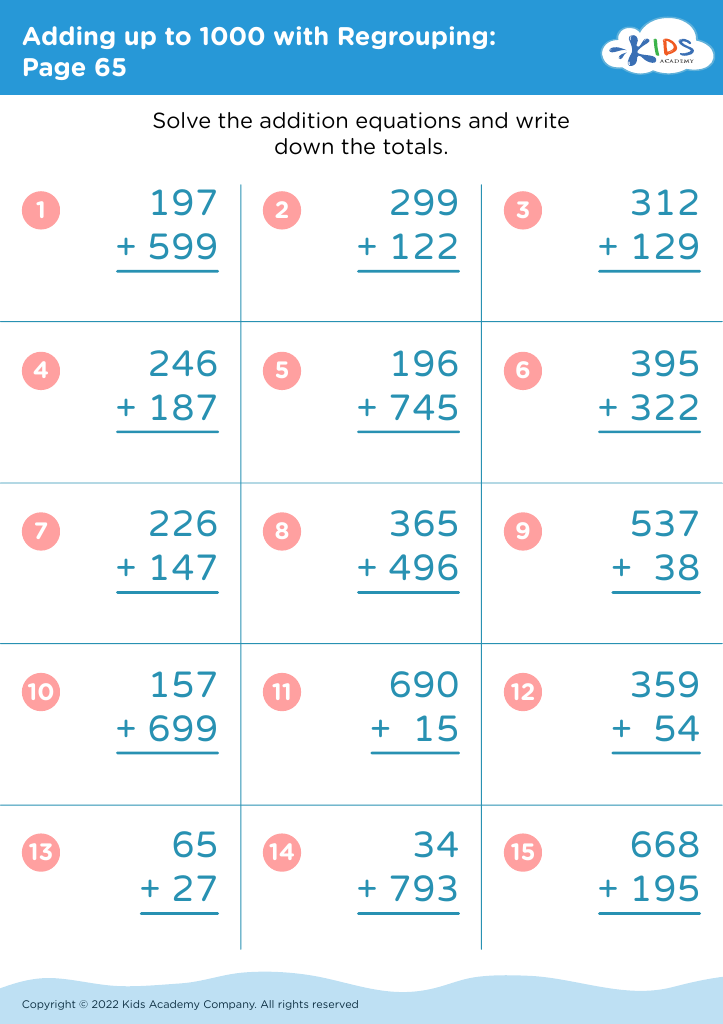Simplifying Fractions Grade 2 Adding up to 1000 with Regrouping Worksheets
3 filtered results
-
From - To
Explore our engaging Simplifying Fractions Grade 2 printable worksheets designed to help young learners tackle addition problems with regrouping, all the way up to 1000. These easy-to-follow exercises seamlessly integrate both simplifying fractions and addition, ensuring a solid grasp of core math concepts. Perfect for second graders, the worksheets aim to enhance problem-solving skills, accuracy, and confidence in mathematics. Thoughtfully crafted by education experts, these resources provide ample practice to reinforce classroom learning or support homeschooling efforts. Foster a love for math in your child with our dynamic, fun, and educational simplifying fractions worksheets.
Understanding how to simplify fractions and perform addition up to 1000 with regrouping is essential for Grade 2 students as it forms the foundational skills for mathematical proficiency. Simplifying fractions helps children grasp the concept of equal parts and proportionality, building their number sense and fluency with basic fraction operations. This skill is fundamental as it paves the way for more complex math topics like fraction addition and subtraction, which are crucial in later grades.
Addition up to 1000 with regrouping trains children to manage larger numbers, enhancing their computational skills. Regrouping helps them understand place value deeply, which is the backbone of arithmetic. Mastery of these concepts results in greater confidence and efficiency in solving math problems. This confidence can inspire a positive attitude towards math, reducing anxiety associated with the subject.
Moreover, these skills extend beyond math class. They help in real-life situations such as dividing snacks equally within a group, making change while shopping, or even doubling a recipe. Collectively, such skills contribute to a child's critical thinking, problem-solving abilities, and overall cognitive development. Therefore, parents and teachers have a fundamental role in emphasizing these concepts to cultivate a strong mathematical foundation in young learners.













